ASHFORD PORT HEALTH ARE APPROVED FOR CERTIFYING EXPORT HEALTH CERTIFICATES
Find out more information about approved certifiers.
Should you require further information regarding IUU Consignments, Export Heath Certificates, POAO, please email porthealth@ashford.gov.uk
Ashford Port Health are recruiting - please click for more information.
Ashford Borough Council - Ashford Port Health
Food Sampling Policy
1. Introduction
1.1. Ashford Port Health (APH) policy is to carry out sampling of food, feed and relevant products to protect public and animal health and to ensure imports are compliant with import controls.
1.2. All sampling activities will be carried out in accordance with legal requirements, current guidance and APH procedures.
1.3. APH will ensure that suitably qualified, trained, competent officers are appointed and authorised to carry out the examination and sampling.
1.4. APH will ensure that proper officers from approved laboratories are appointed to carry out the examination and analysis of food, feed and relevant products.
1.5. This policy is supported by the Authority’s Service Plan, which is produced annually with the Food Standards Agency Framework Agreement on Local Authority Food and Feed Law Enforcement.
1.6. This policy document is implemented and supported by various sampling procedures that are put in place by APH.
1.7. A copy of this policy document is available for free on APH website.
2. Sampling of food, feed and relevant products
2.1. All checks are carried out in accordance with assimilated Regulation (EU) 2029/2130 that establishes detailed rules on the operations to be carried out during and after documentary checks, identity checks and physical checks on animals and goods subject to official controls at border control posts.
2.2. APH Official Inspectors must verify that the goods are fit to be used for the intended purpose and that their properties have not changed during transport, by means of:
2.2.1. Sensory examination of the smell, colour, consistency or taste of the goods; or
2.2.2. Simple physical or chemical tests by cutting, defrosting or cooking the goods; or
2.2.3. Laboratory testing
2.3. Laboratory testing is undertaken where it is not possible to verify the goods are fit for the intended purpose at the BCP.
2.4. APH will produce an annual sampling plan covering the food and feed products that should be considered for sampling. However, deviations from the plan will always occurs as the sampling of food, feed and relevant products must be determined by the following:
2.4.1. Requirements of current legislation and associated statutory sampling requirements
2.4.2. New legislation coming into force
2.4.3. Trends identified from previous sampling activities
2.4.4. Intelligence and risk relating to the type of product, country of origin, history of compliance on the importer/exporter, etc.
2.4.5. Suspicion or sufficiency of documentation received. Sampling may be required to verify assurances on health certificates or to investigate discrepancies
2.4.6. Suspicion of non-compliance detected during routine inspection
2.4.7. Information received from external sources suggesting non-compliance
2.4.8. National priorities as directed by the Food Standards Agency (FSA) and Department for Environment, Food and Rural Affairs (DEFRA) such as the National Monitoring Plan
2.4.9. Intensified Official Control relating to repeated infringements or serious health risk. Where this is triggered, the first 10 consignments are detained and checked. This will be evident by a banner on IPAFFS.
2.5. APH will endeavour to select consignments at random for sampling unless the legislation or emerging issues requires specific targeted selection.
2.6. Every effort will be made to collect samples that are representative of the consignment declared to APH.
3. Analysis and Examination
3.1. Samples of imported products are normally considered as formal samples. Samples may also be taken for monitoring purposes or in response to intelligence.
3.2. Samples for analysis will be submitted to the Public Analyst appointed by APH.
3.3. Samples for examination will be submitted to the Food Examiner of the United Kingdom Health Security Agency (UKHSA) Laboratory appointed by APH.
3.4. APH will have regard to the opinions of the Food Examiner and Public Analyst for the interpretation of sampling results, including all relevant guidance.
4. Resources
Where legislation indicates that all costs relating to food, feed and food contact material sampling and analysis or examination are recoverable, these fees will be charged and recovered in full, from the importer or their representative.
5. Documentation
5.1. APH will inform the declared importer and/or their representative of all samples taken and the results. A copy of the analysis/ testing will be provided to the importer and/or their representative.
5.2. Records of sampling checks will be retained for 3 years.
5.3. Electronic copies of all sample submission forms with which samples are sent to laboratories for examination/analysis will be retained for 1 year.
5.4. An electronic record of the results of samples sent for examination/analysis will be retained for 3 years.
6. Contested Results
6.1. Results may be contested in line with the Food Standards Agency (FSA) Code of Practice. This is in line with Article 35(1) of Assimilated Regulation (EU) 2017/625.
6.2. Contested results only relates to samples taken for laboratory analysis and not microbiological analysis.
6.3. When food or feed samples are taken for official control analysis, 3 samples must be taken by law. One sample is provided to the owner so they can carry out their own analysis, if they wish. The control authority takes a sample to be tested and the third sample is the referee sample, which is sent to the Government Chemist if there is a dispute.
6.4. APH ensures that operators whose goods are subject to sampling, analysis, test or diagnosis in the context of official food controls, have the right to a second expert opinion, at the operator’s own expense.
7. Review
This policy will be reviewed on an annual basis and when there are significant changes to legislation, guidance or activities at the port covered by this policy.

